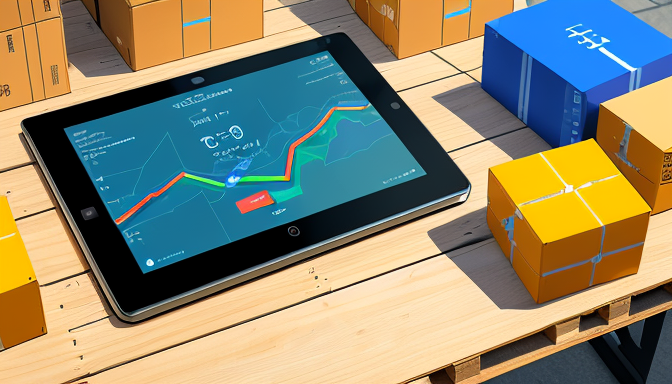Blockchain technology is not just a buzzword; it’s a revolutionary force reshaping our daily lives in ways we never imagined. Think of it as a digital ledger that is both secure and transparent, allowing us to conduct transactions without the need for a middleman. This technology is like a magic key that unlocks a new world of possibilities, from finance to supply chains, and even to our digital identities.
In the realm of cryptocurrency, blockchain serves as the backbone, making transactions faster and more secure. Have you ever wondered why cryptocurrencies like Bitcoin have gained such traction? It’s because blockchain eliminates the risk of fraud, making it a trusted medium for exchanging value. Beyond just money, blockchain is also paving the way for Non-Fungible Tokens (NFTs), allowing artists to securely sell their digital creations while retaining ownership.
Moreover, the decentralized web ecosystem powered by blockchain is challenging traditional internet models. Imagine a world where your data is yours alone, not held hostage by tech giants. This shift not only enhances privacy but also empowers individuals with greater control over their digital lives.
As we dive deeper into the age of blockchain, it’s clear that this technology is not just a trend; it’s a catalyst for change. From finance to art, the implications are vast and exciting. Are you ready to embrace this new era?
Blockchain in Financial Services
Blockchain technology is not just a buzzword; it’s a game changer in the world of finance. Imagine a world where your transactions are not only faster but also more secure. That’s the magic of blockchain! By utilizing a decentralized network, blockchain eliminates the need for intermediaries, which often slow down processes and increase costs. This means you can send money across the globe in a matter of minutes, rather than days, and at a fraction of the cost. Isn’t that incredible?
Moreover, the rise of cryptocurrencies, such as Bitcoin and Ethereum, has opened up a whole new realm of financial possibilities. These digital currencies operate on blockchain technology, allowing for peer-to-peer transactions without the need for traditional banks. This is particularly transformative for individuals in underbanked regions, providing them with access to financial services they never had before. Just think about it: a farmer in a remote village can now receive payments directly without worrying about high fees or long wait times.
Additionally, Non-Fungible Tokens (NFTs) are making waves in the financial landscape. They represent ownership of unique items or assets, such as art or collectibles, on the blockchain. This not only ensures authenticity but also opens up new revenue streams for artists and creators. As we embrace this decentralized web ecosystem, it’s clear that blockchain is paving the way for a more inclusive and efficient financial future.

Impact on Supply Chain Management
Blockchain technology is not just a buzzword; it’s a game-changer that’s reshaping the way we think about supply chain management. Imagine a world where every product you purchase comes with a digital fingerprint, ensuring its authenticity and origin. This is the power of blockchain! By providing a decentralized ledger, blockchain enhances transparency and efficiency in the supply chain, allowing all parties—from manufacturers to consumers—to access real-time data.
How does this work? Each transaction is recorded on a blockchain, creating an immutable record that can be verified by anyone involved in the process. This means that if you’re buying organic tomatoes, you can trace their journey from the farm to your table, ensuring they truly are organic. No more guessing games or misleading labels!
Furthermore, blockchain significantly reduces the chances of fraud. In traditional supply chains, counterfeit goods are a major issue, costing businesses billions annually. With blockchain, every product can be tracked, and its authenticity verified, which not only protects consumers but also enhances brand trust.
Consider the following benefits of blockchain in supply chain management:
- Real-time tracking: Monitor products at every stage of the supply chain.
- Enhanced security: Reduce the risk of data tampering.
- Cost efficiency: Lower operational costs by eliminating intermediaries.
In summary, blockchain isn’t just a tech trend; it’s a revolutionary force in supply chain management that promises to create a more secure and transparent world for consumers and businesses alike.
Frequently Asked Questions
- What is blockchain technology?
Blockchain technology is like a digital ledger that records transactions across many computers. This means that once a transaction is recorded, it cannot be changed, ensuring transparency and security. Think of it as a public library where everyone can see the books, but no one can alter them!
- How does blockchain improve financial services?
Blockchain enhances financial services by making transactions faster, cheaper, and more secure. Imagine sending money across the globe in seconds without hefty fees—sounds like magic, right? That’s the power of blockchain!
- Can blockchain be used in supply chain management?
Absolutely! Blockchain provides real-time tracking of products, ensuring they are authentic and reducing fraud. It’s like having a GPS for your goods, giving you peace of mind about where everything is at all times.
- Is blockchain technology secure?
Yes, blockchain is known for its high level of security. Each transaction is encrypted and linked to the previous one, making it extremely difficult for hackers to alter any data. It’s like a chain where each link is fortified, creating a robust barrier against tampering.